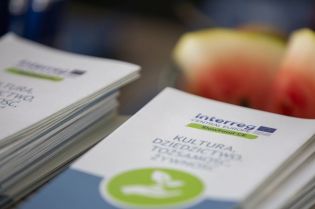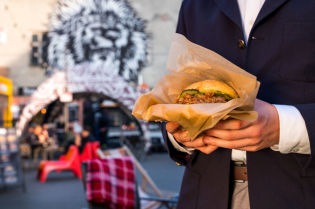Slow Food Central Europe – promoting gastronomic heritage
Cheese 2017 in Bra, Italy, was the location for a meeting between partners from five European Union member states (Italy, Croatia, Czech Republic, Hungary and Poland) to officially launch Slow Food Central Europe.
Gastronomy is largely used to promote tourism but hardly ever treated as a resource that can leverage environmental sustainability and social integration. This new project is aimed at improving the capacities of local actors to add value to the intangible heritage of food, while integrating economic, environmental and social sustainability.
Piero Sardo, the president of the Slow Food Foundation for Biodiversity, says: “Each country has its own cultural identity, of which its gastronomic heritage is also an integral part. This gastronomic heritage is made up of products, traditions and artisanal knowledge, the result of thousands of years of human presence in a specific place, but also of the exchanges that local communities have established over time with other peoples. This diversity distinguishes and enriches us, at every latitude. In the case of Central European countries, the true protagonists of this project, this cultural diversity is based on common foundations. Searching for the gastronomic products and traditions of each country and the artisanal knowledge necessary to preserve them while safeguarding and enhancing agricultural biodiversity is the project’s main objective.”
The Pilot Action within “SLOW FOOD-CE” project gives a chance to create a full gastronomic heritage tourist product of Krakow, to diversify city’s tourist offer and encourage tourists to explore new areas and dimensions of touristic space. It will focus not just on the Old Town, heavily penetrated by tourists, but also on the other, more distant, areas of the city as well as the outskirts and Krakow’s metropolitan area (up to 50 km from Krakow). The tourist product will consist of stories and narratives rooted in gastronomic heritage, offers and recommendations for tourists, proposals of gastronomic trails and tours to visit city and region, as well as descriptions of local products and dishes, recipes, etc. The product will be implemented through a variety of tools, including a website, an album/guide of gastronomic heritage, a leaflet and a mobile device app. Also an event to promote the launch of a new gastronomic heritage product will be organized. The fact of Krakow being a European Capital of Gastronomic Culture will also be used in communication of the pilot action.
The Slow Food Central Europe project is financed by the EU program Interreg Central Europe. The Slow Food Central Europe project will test innovative, community-led solutions for the promotion of gastronomic heritage in public urban spaces in five cities: Venice (Italy), Dubrovnik (Croatia), Krakow (Poland), Brno (Czech Republic) and Kecskemét (Hungary). List of partners: Slow Food, City of Venice (Italy), University of Gastronomic Sciences (Italy), City of Dubrovnik Development Agency – DURA (Croatia), Kinookus Association (Croatia), Tourist Authority South Moravia – CCRJM (Czech Republic), Slow Food Brno (Czech Republic), City of Krakow (Poland), Slow Food Polska (Poland), City of Kecskemét (Hungary), Slow Food Kiskunság (Hungary).










